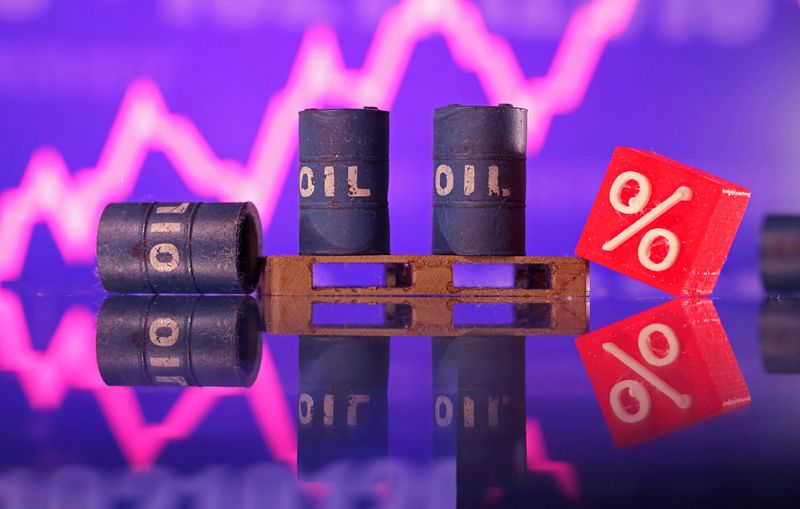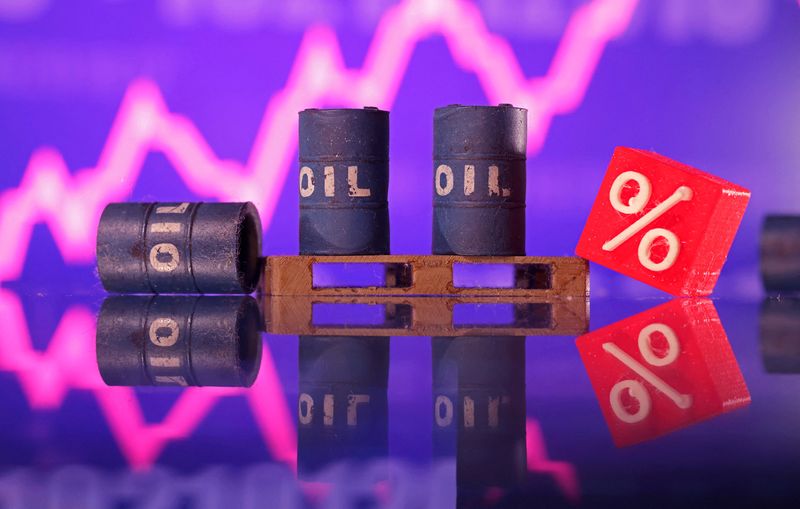
By Arunima Kumar
(Reuters) – Oil prices fell more than 1% on Wednesday as investors reassessed whether China’s latest stimulus plans will be able to boost its economy and spur fuel demand in the world’s largest crude importer.
Still, declining U.S. crude oil and fuel stockpiles, and more violence in the Middle East, provided some support for the market.
Brent crude futures were down $1.10, or 1.46%, at $74.07 a barrel at 1200 GMT. U.S. West Texas Intermediate crude was down $1.14, or 1.59%, at $70.42 per barrel.
Despite a slew of monetary support measures announced by China’s central bank on Tuesday, the boldest since the pandemic, analysts warned that more fiscal help was needed to boost activity in the world’s second-largest economy.
“Concerns lingered that more fiscal support would be needed to boost confidence in the Chinese economy. This uncertainty raised doubts about sustained demand growth, weighing on crude prices,” said George Khoury, global head of education and research at CFI Financial Group.
Oil prices rose by about 1.7% on Tuesday after China announced sweeping interest rate cuts and more funding. But credit demand is already extremely weak, and the steps did not include any measures to shore up real economic activity.
“Market participants (are) questioning if the latest stimulus measures by the People’s Bank of China are enough to support Chinese economic and oil demand growth,” said UBS analyst Giovanni Staunovo.
“I still see further upside for crude prices, with oil inventories still falling globally,” he added.
U.S. oil stockpiles fell by 4.34 million barrels last week while gasoline inventories dropped by 3.44 million barrels and distillate stocks were down by 1.12 million barrels, according to market sources citing American Petroleum Institute figures on Tuesday.
The intensifying conflict between Iran-backed Hezbollah in Lebanon and Israel also supported crude prices, with cross-border rockets launched by both sides increasing fears of a wider conflict.

Although Iran’s leadership has shown restraint, an attack is probably on the cards in order to save face, but without enraging its European allies and disrupting the main oil trade routes, said Achilleas Georgolopoulos, investment analyst at brokerage XM.
Meanwhile, a hurricane threatening the U.S. Gulf Coast has changed course towards Florida and away from oil and gas-producing areas near Texas, Louisiana and Mississippi.
This post is originally published on INVESTING.




